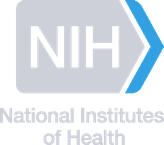The Patient-Centered Outcomes Research Institute (PCORI), a non-profit government-sponsored organization, has selected COVID-19 Citizen Science Investigators at UCSF to study the impact of COVID-19 shelter-in-place policies and access to containment and mitigation strategies, overall and in vulnerable populations. As part of this work, we are partnering with 11 other Universities and health systems within PCORnet around the United States to broaden our reach and expand the depth of our data.
Policy makers have a critical role to play in the COVID-19 pandemic. Their decisions about how fast to reopen society and lift shelter-in-place orders will directly impact infection rates, and also determine how severely people are harmed by policies that continue to restrict the population’s ability to work and interact with other people. These are excruciating decisions. While policy makers have easy access to daily counts of cases, hospitalizations, and deaths from COVID-19, they currently do not have access to the patient perspective. Policy makers need information about how restrictive policies are actually impacting the populations they serve, and how successful their policies are at providing access to resources meant to contain and mitigate effects of the Pandemic. Our proposal will compare the impact of policy maker decisions in different states, counties, and health systems across the US, and will focus particularly on the impact in communities that are most vulnerable to harms due to their economic situation, employment, housing, location (e.g., rural or low-income) or burden of medical comorbidities. Our specific research questions are:
- What is the comparative impact of different shelter-in-place/reopening policies, overall and in vulnerable populations, on patient-reported financial insecurity, mental health, and other subjective outcomes important to patients?
- What is the comparative effectiveness of county-level containment and mitigation strategies at achieving timely access to testing, healthcare, information, and contact tracing, overall and in vulnerable populations?
- What is the comparative accuracy of different algorithms designed to predict risk of infection and severe COVID-19 among patients with symptoms, overall and in vulnerable populations?
THANK YOU to all of our Citizen Scientists for contributing to this important work! For more information about this project, click here.




